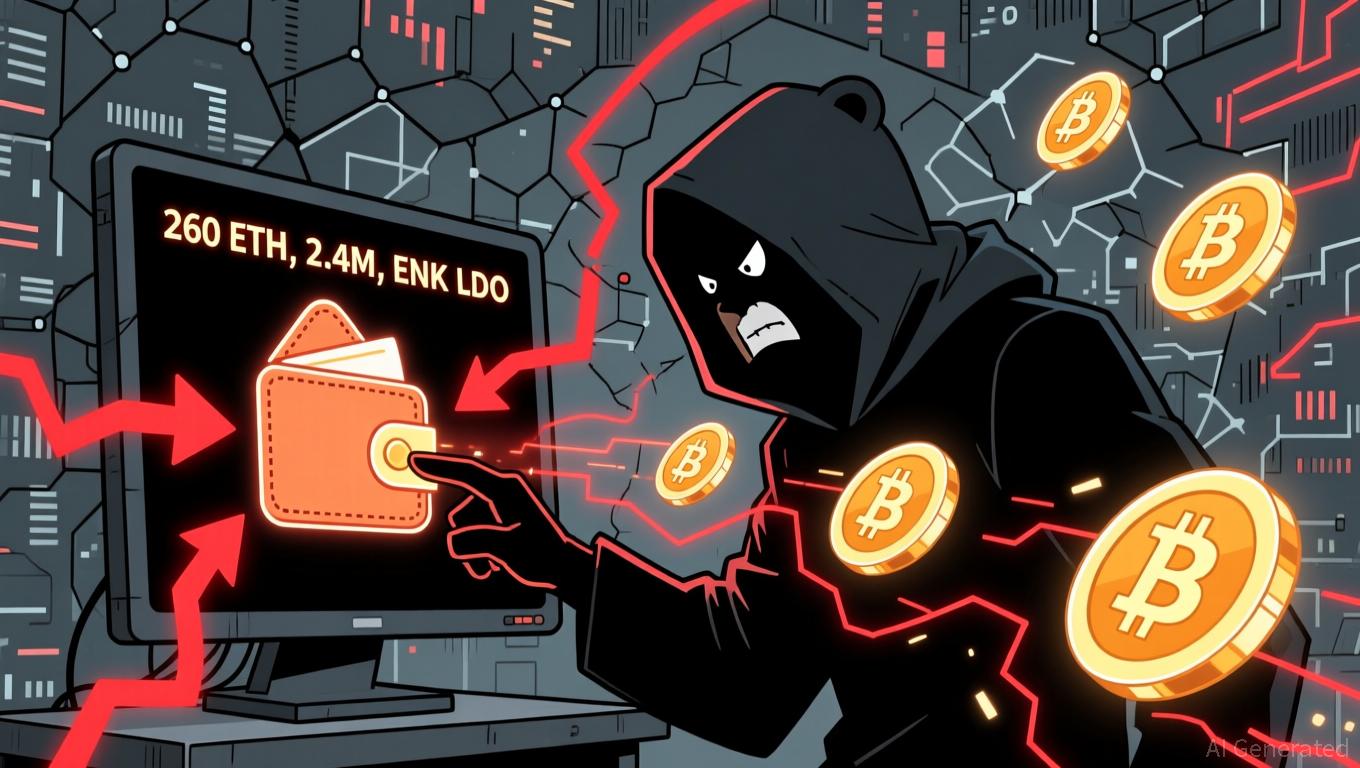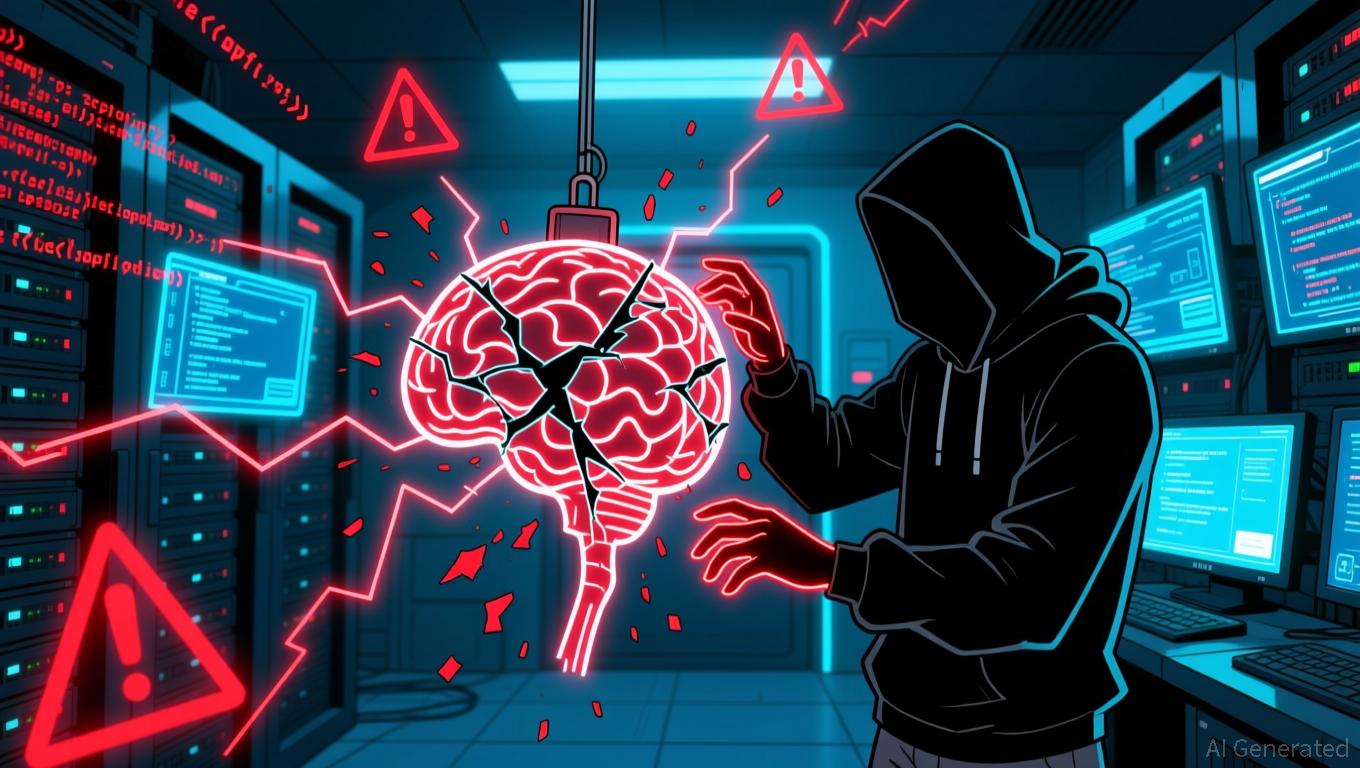Ethereum News Today: Ethereum’s Unyielding Approach: Shutting the Door on Centralization
- Ethereum co-founders release "Trustless Manifesto" on blockchain to reinforce decentralization amid ecosystem centralization risks. - Document encoded in ownerless smart contract emphasizes self-custody, public verifiability, and rejecting convenience-driven centralization. - Warns against AWS outages and hosted RPCs creating single points of failure, citing 25% throughput loss on Coinbase's Base chain. - Critiques Paradigm's growing influence and institutional staking risks, proposing DVT to mitigate ce
Ethereum co-founder Vitalik Buterin and the
This manifesto comes at a time when Ethereum is under increasing scrutiny for allegedly moving toward centralization. Former core developer Péter Szilágyi recently claimed that a small group of insiders essentially steer Ethereum’s direction by controlling attention, funding, and protocol choices, forming a “ruling elite” that threatens decentralization

The manifesto details six essential criteria for decentralized networks: self-sovereignty, public verifiability, resistance to censorship, the ability to replace operators, accessibility, and transparent incentive structures. It also sets out three “laws” to guard against centralization: no single party should hold critical secrets, no irreplaceable intermediaries, and all outcomes must be verifiable.
Paradigm, a venture capital firm managing $12.7 billion in assets, has also faced questions about its growing sway over Ethereum. The company funds major open-source projects like Reth, employs leading researchers, and has launched Tempo, a layer-1 blockchain with backing from traditional finance institutions. Ethereum core developer “Fede’s intern” has cautioned that Paradigm’s expanding role could pose a “significant tail risk” to the ecosystem, as business interests might shift priorities away from community-led decentralization
The release of the manifesto comes amid ongoing discussions about Ethereum’s governance and the influence of institutions in staking. With staking-based ETFs expected to draw more institutional players, there are worries that large ETH holdings could threaten the network’s security.
For Buterin and the Ethereum Foundation, the Trustless Manifesto is a renewed philosophical pledge to the blockchain’s founding ideals: enabling collaboration without intermediaries. “Trustlessness isn’t an add-on; it’s the core principle,” the document asserts,
Disclaimer: The content of this article solely reflects the author's opinion and does not represent the platform in any capacity. This article is not intended to serve as a reference for making investment decisions.
You may also like
JPMorgan is unwilling to cover the legal expenses of Frank founder Charlie Javice
Ethereum Updates: Arthur Hayes Sells $2.45M ETH/DeFi Holdings, Indicating Negative Market Sentiment
- Arthur Hayes sold $2.45M in Ethereum and DeFi tokens, including 260 ETH and 2.4M ENA, signaling potential bearish sentiment. - Blockchain analysts highlight risks of price dips as large ETH sales often trigger short-term market declines, with $3,000 support levels under scrutiny. - Simultaneous offloading of AAVE, UNI, and LDO tokens suggests profit-taking amid rising traditional finance rates and DeFi liquidity shifts. - Zcash (ZEC) whale activity and leveraged ETH short positions further amplify crypto

Anthropic Claims Cyberattack Involved AI, Experts Express Doubts
- Anthropic claims Chinese state hackers used AI to automate 80-90% of a cyberattack targeting 30 global entities via a "jailbroken" Claude AI model. - The AI-generated exploit code, bypassed safeguards by fragmenting requests, and executed reconnaissance at unprecedented speed, raising concerns about AI's dual-use potential in cyber warfare. - Experts question the validity of Anthropic's claims while acknowledging automated attacks could democratize cyber warfare, prompting calls for stronger AI-driven de

AAVE Drops 13.95% Over 7 Days Amid Strategic Changes Triggered by Euro Stablecoin Regulatory Approval
- Aave becomes first DeFi protocol to secure EU MiCA regulatory approval for euro stablecoin operations across 27 EEA states. - The Irish subsidiary Push Virtual Assets Ireland now issues compliant euro stablecoins, addressing ECB concerns about USD-dominance in crypto markets. - Aave's zero-fee Push service generated $542M in 24-hour trading volume, contrasting with typical 1-3% fees on centralized exchanges. - With $22.8B in borrowed assets, the platform's regulatory milestone is expected to accelerate a